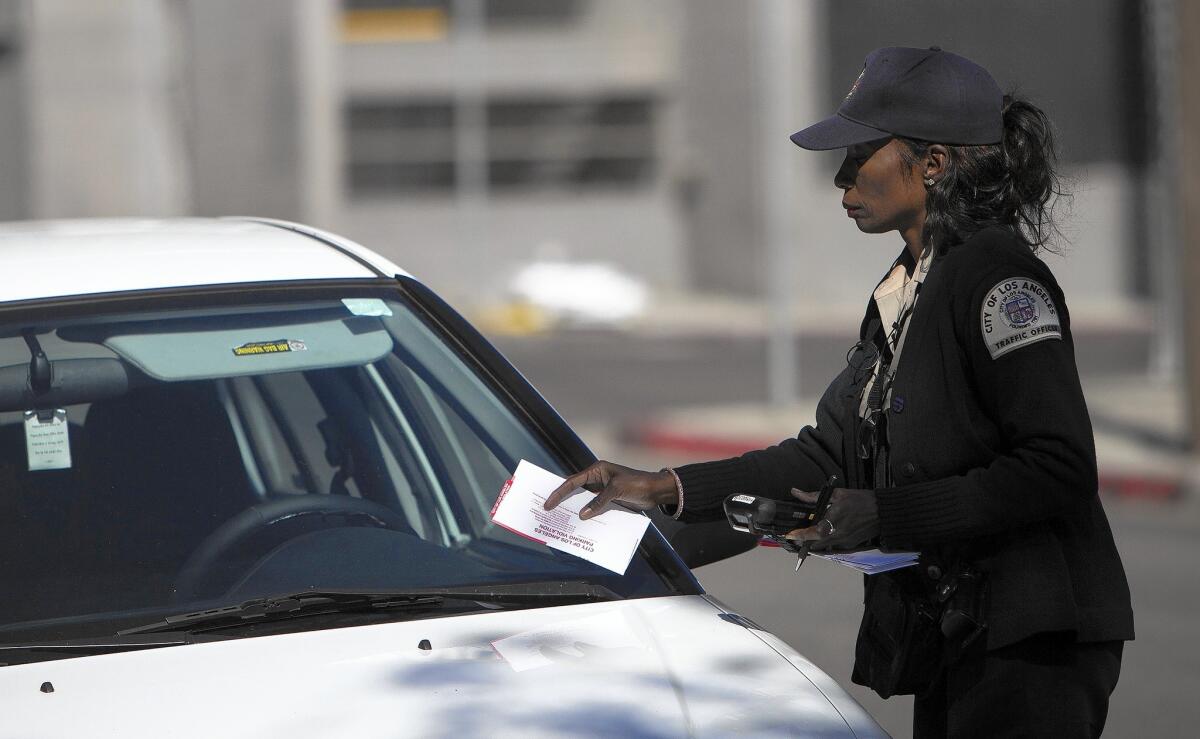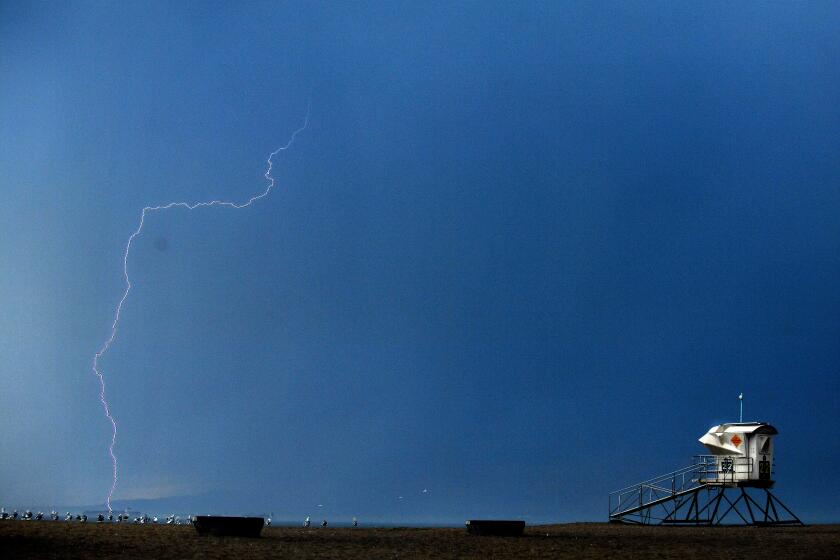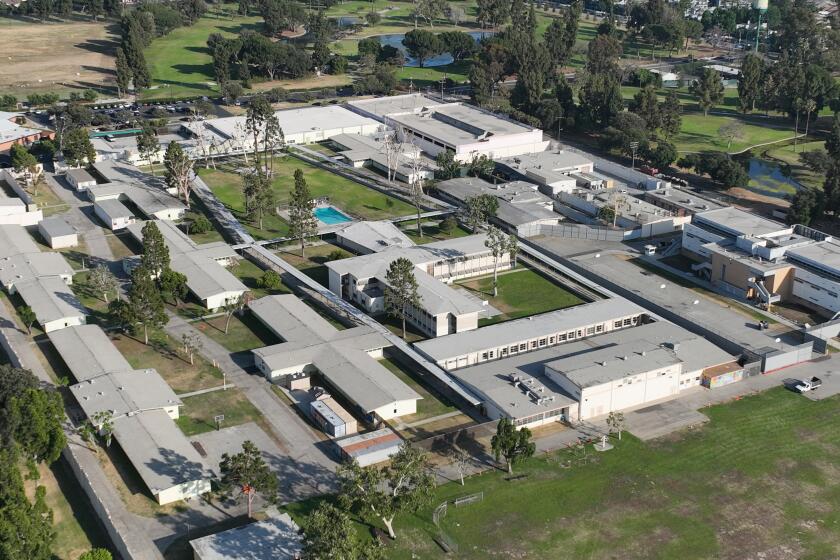California Commute: L.A. City Council to weigh proposals to slash parking fines

- Share via
With more than $440 million in cash stashed away for a rainy day, Los Angeles City Hall’s finances are looking rosier than they have in years.
Those numbers, made public last week, have encouraged a group that is urging elected officials to reexamine how parking tickets are issued. Until recently, their proposal to slash fines seemed a tough sell because parking ticket income helped maintain basic city services during the worst of the economic downturn.
But a new, healthy reserve of cash creates an opportunity for elected officials to adjust parking enforcement policies in ways that could benefit many Angelenos, said Jay Beeber, a member of the working group convened by Mayor Eric Garcetti to advise City Hall on parking issues.
“It certainly helps that Los Angeles is no longer scrounging in the couch cushions for every nickel and dime,” he said.
Beeber is part of the Los Angeles Parking Freedom Initiative advocacy group, which has complained that Los Angeles has become too dependent on parking fines to balance its $5.4-billion operating budget. Fine revenue has grown 50% to $165 million annually since 2003 and is projected to reach $180 million by 2018, according to the mayor’s current budget.
Beeber’s group also contends that the steep cost of parking tickets disproportionately hurts the poor, particularly in areas with scarce parking. The advocates’ plan would reduce the price of tickets that do not involve a threat to public safety. For example, parking at an expired meter would qualify for a lower fine, but parking in a fire lane would not.
Each year, a driver’s first ticket for an expired meter would cost $23, the current median hourly wage for a worker in the Los Angeles area and less than half the current $68 penalty. The parking group’s proposal calls for fines on subsequent tickets to gradually rise to a maximum of $68.
Advocates are also urging changes to how the city manages its parking meters. Rather than estimating how much time will be necessary for an errand, drivers should be able to insert a credit card into the meter and stay as long as they would like, said Steven Vincent, the founder of the Parking Freedom Initiative. Hourly rates would increase to encourage turnover in the spaces.
That would “eliminate those annoying tickets you get when you get back to the meter 30 seconds after the meter maid does,” Vincent said. “That’s one thing that really annoys people.”
During last week’s council committee hearing, Councilman Mike Bonin, who represents Venice and other Westside neighborhoods, called the tiered structure “very intriguing.”
The committee directed city staff to study about a half-dozen of the advocates’ proposals, including the suggested changes to meter use and parking fines. Their reports, expected in several months, will help the City Council decide whether to adopt the policies.
The lawmakers have also asked for a report on the creation of a GPS-based system that could alert residents in real time when a street sweeper is approaching their neighborhood.
Transportation officials will also study whether there is a relationship between ticket fines and the percentage collected. “If somebody gets a $23 ticket, they’re more likely to be able to afford it,” Beeber said, suggesting that the rate of violators who pay their fines could increase if the price dropped. “And the punishment would more accurately fit the crime.”
The group has also proposed changes in how the city manages parking violations for FedEx, UPS and other delivery companies that collect stacks of parking tickets during brief curbside stops.
In Los Angeles, freight companies pay up to $10,000 per day in parking citations, and about 60% of them are for parking at a red curb, said Juan Matute, the associate director of the UCLA Institute of Transportation Studies. The majority of the tickets are issued on about a dozen downtown streets, he said, suggesting that the addition of more commercial loading zones could make a difference.
One model for reform could be New York City, where delivery trucks negotiating congested streets received an average of 7,000 parking tickets per day in 2006 and paid more than $100 million in fines. Then-Mayor Michael Bloomberg offered freight companies a discount on their parking tickets if they agreed to pay them without contest. Officials there estimated that the program has eliminated more than 750,000 parking ticket hearings and saved $1 million in administrative costs per year.
Another proposal to revamp zones where only residents with permits can park could be more of an uphill battle, Beeber said. He has urged the City Council to consider raising the price of the permits and opening those restricted zones to workers at nearby businesses.
Bonin noted that permit-only parking zones in some residential areas were created because of overflow parking from business districts.
The City Council’s heightened interest in delving into the details of the parking enforcement program is promising, Vincent said. But if progress stalls, he added, his group will consider launching a signature-gathering campaign to place a package of changes before voters, perhaps in the 2017 citywide election.
“We always reserve the right to take the matter directly to the people,” Vincent said. “We don’t want to see these recommendations gather dust on a shelf somewhere.”
For more transportation news, follow @laura_nelson on Twitter.
ALSO:
After missing target, county seeks to ease immigrants’ healthcare enrollment
Ex-L.A. County sheriff’s sergeant sentenced to 8 years in prison in jail visitor beating
Head of money-losing L.A. County Fair Assn. made nearly $900,000 in total compensation
More to Read
Sign up for Essential California
The most important California stories and recommendations in your inbox every morning.
You may occasionally receive promotional content from the Los Angeles Times.














